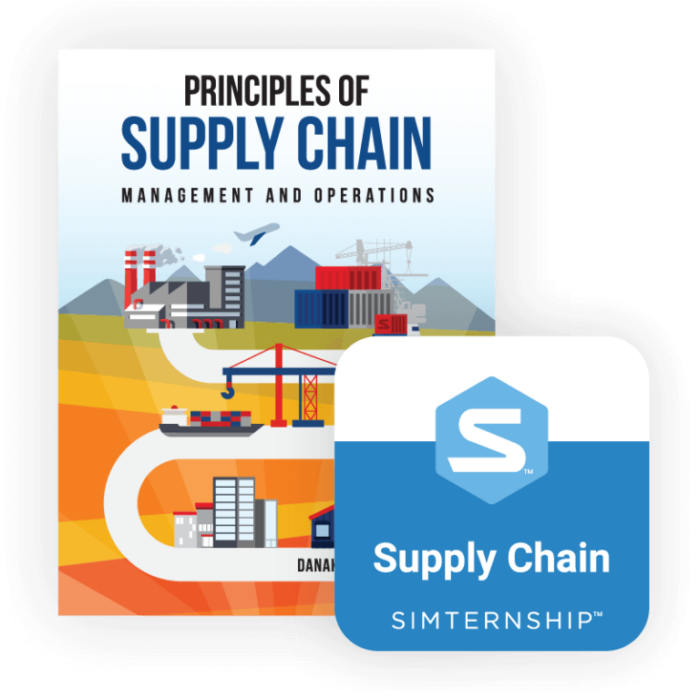In the dynamic and evolving field of supply chain management, the transition from academic learning to the workforce can be a significant leap. Educators play a pivotal role in bridging this gap, shaping students into future supply chain specialists equipped with the necessary skills to thrive. But what are the key competencies that these aspiring professionals should acquire before they step into the real world?
To gain insight into this question, we reached out to six professionals across various industries. They shared their experiences and highlighted the vital skills they believe are indispensable for entry-level supply chain professionals. Their responses not only offer a roadmap for educators to fine-tune their curriculum but also provide valuable guidance for students eager to make their mark in the supply chain sector. Here’s what these professionals had to say:
Grasp Ground-Level Supply Chain Realities
A vital skill that every entry-level supply chain professional should have is a strong understanding of the day-to-day work of the supply chain at the ground level. Understanding, for example, what life on the road is really like for truck drivers is very important because this will help you to realistically plan how long it will take to move goods from one location to another.
The ability to create a reasonable timetable and to adapt it to changing conditions is a critical skill of supply chain management, and it needs to be anchored in the actual experiences of the individuals along the supply chain, rather than merely theoretical.
Lauren Gast, Head of Communications and Marketing, Truck Driver Institute
Cultivate Strategic Decision-Making Skills
As a recruiting leader with a company that fills many supply chain roles, including those at the entry level, the most vital skill I look for in these professionals is the ability to make strategic decisions that are based on logic and observation.
There is no room in the modern supply chain landscape for workers at any level to go on “auto-pilot.” Today’s global supply chain grows quickly and is susceptible to a wider variety of disruptions and shifts than in the past. While workers need to follow the established best practices and policies, they can’t afford to do so blindly.
This needs to be paired with situational awareness about the current business environment. Having an entry-level team that is paying attention to the details of their work, rather than simply performing tasks as they’re told, can be a huge benefit for limiting the impact of disruptions and maintaining productivity and business continuity, regardless of what is happening in the broader economy.
Rob Boyle, Marketing Operations Director, Airswift
Learn Industry-Specific Planning Software
I would say a deeper knowledge of planning software specific to the industry is important. This naturally comes with experience in an industry role; however, I’d recommend that anyone looking to apply to the sector look into the type of software they’ll be using daily — even just to have a surface-level understanding of how things might work.
Wendy Makinson, HR Manager, Joloda Hydraroll
Build Analytical and Tech Skills
Entry-level professionals with strong analytical skills can optimize supply chain processes, enhance efficiency, and make informed decisions that positively affect the supply chain’s overall performance. Technology plays a crucial role in augmenting these skills and keeping specialists up to date with industry trends and changes.
During my 27 years of work at a distributor of engineered systems, I gained invaluable insights into supply chain management. Data analysis was a key skill I gained before entering the workforce, along with proficiency in relevant technologies such as Excel, SQL, and specialized supply chain management software.
Campbell Tourgis, Executive VP and Chief Operating Officer, Wainbee
Master Data Analysis for Supply Chain
Many of our supply chain clients lament not having someone who understands the data — not just interpreting data, but understanding where it is, where it goes, and what silos are created.
Get good at data analysis through SQL, Excel, and new AI-backed technologies. Work on being able to unlock additional data sources and synthesize data from disparate sources to achieve entirely new findings.
Become known as the go-to data person in your supply chain companies. This field is only going to grow, as AI influences all areas of planning and logistics. Be ready for that shift, and you’ll profit greatly.
Mark Varnas, Principal SQL Server DBA and Consultant, Red9
Develop Self-Advocacy in the Workplace
I wish I had learned how to speak up and advocate for myself when I was younger. As a kid, I was taught that it was rude to interrupt or contradict people, especially if they were older than me. I didn’t want to hurt anyone’s feelings or make them angry, so it felt safer to just go along with what everyone else was doing and say nothing.
But as an adult who works in a field where being vocal is important — and sometimes even necessary — this has been a real problem for me. It’s hard for me to voice my opinion, ask for help, or even let others know what’s going on inside my head. It takes practice — and some serious self-confidence — to learn how to advocate for yourself and your ideas in the workplace.
Rengie Wisper, Marketing Manager, SupplyGem
Stukent’s Principles of Supply Chain Bundle
The Principles of Supply Chain Bundle combines the “Principles of Supply Chain” courseware with the Stukent® Supply Chain Simternship™. Together, these materials bridge the gap between the theory and practice of supply chain management. Your students will develop the skills they need to manage a supply chain successfully, while you get an easy-to-implement curriculum that’s packed with resources.
With the Supply Chain Bundle, your students will explore real-world supply chain scenarios, optimize inventory levels, select transportation methods and warehouse locations, navigate disruptions, and perform other vital supply chain tasks.
“It’s one thing to read the material,” said Ashleigh Kindred, a student who has used the bundle. “However, seeing how it applies to real life adds another level of understanding most other courses do not offer. I loved seeing how the materials applied to the real world. … It gave me more confidence in my work because I got to mess up before it really mattered.”







